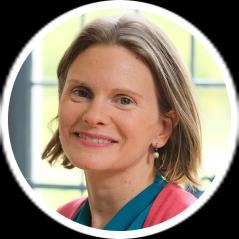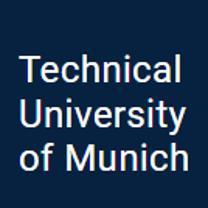UK admissions process, including Degree Apprenticeships US and Canada applications
EU and other international Applications

Mrs V Bingham
Headmistress

Mr S Etienne
Deputy Head, Academic

Assistant Head: University Guidance and Careers

• Ms D Mardell, Assistant Head, University Guidance and Careers (oversees UK and the rest of the World except US, Canada and EU)
• Dr P Aherne, Head of US and Canadian University Applications
• Mr T Rodrigues, Degree Apprenticeship Lead
• Mrs M Muirhead, EU Applications Lead
• Mr D James-Williams, UCAS Adviser (ONL applications)

“Myenrichmentteacherreallyhelpedme by giving very simple yet profound questions, much like in the real interview, where I was invited to reflect on preconceived ideas, and these sessions undoubtedly had the biggest impactonmyadmissionsprocess.”
Successful Oxford applicant for Ancient History and Classical Archaeology
“External challenges like Chemistry and Biology Olympiads and poster/essay competitions have really helped me developmyskillsof"thinkingoutsidethe box” when faced with unfamiliar scenarios.”
Successful Oxford applicant for Medicine


“It was constructive to meet with our mentors to review our progress. The Maths department recommended books they thought I would enjoy reading and talking about, so it was very fine-tuned to measanindividual.”
Successful KCL applicant for Computer Science and Mathematics


“Iregularlymetwithmymentortolookovermypersonalstatement. Through discussions with her, I was able to ensure my personal statementtrulyreflectedmy loveandpassionforthecourse Ichose tostudy . ”
SuccessfulWarwickapplicantforPPE
“Havingmentors was usefulas itgave me anopportunityto discuss andbuildupon theideasinmypersonalstatement. Mymentor also helpedme select an essay formy written worksubmission,making theexperiencemoreenjoyable.”
Successful Oxford applicant for History

“In the run-up to the interview, I had lots of mock interview sessions with my mentor where we would practise differenttypes ofquestions thatmight come up, fromdiscussing material that he hadgiven me to read to talkingaboutmysubmittedwrittenwork.”
Successful Cambridge applicant for HSPS

“Bytacklingarangeofdifferentanglesofmysubject[inEnrichment lessons],Iwas abletofindtopicsoutsidethesyllabustomentionin mypersonalstatement,andlaterinmyinterview . ”
Successful Oxford applicant for History
“We were encouraged to take elements from things in class and develop/applyideastoahigherlevel.”
Successful Cambridge applicant for Natural Sciences

What to consider:
• University and course type
• 5 choices
• Oxbridge
• Costs
• Accommodation
• Location

Universities in the UK fall into one of the following types:

Applicants may choose to apply for:
Single Honours:
Joint Honours:
Major/minor honours:
Straight to Master’s:



“Ihavebenefittedfromtheguidancewhichwereceivedalltheway from whenwe werepreparing fortheUCAT(Medicine admissionstest),to were making decisions on what universities to apply to, as well as interviewsarrangedbytheschoolfrombothexternalinterviewersand There was even an Oxbridge Medicine interview preparation session attendedandfoundincrediblyuseful,andthetypeofthinkingthatIpractised thatsessionwasverysimilartotheactualinterviewsthemselves.”

“While researching accommodation, I tried to find a range of opinions. Imessaged some connections,includingONLs,asking for advice and their experience. I think it's important to gather impressionsfromasmanypeopleaspossible,especiallyspeakingto them personally and mentioning preferences. This will also hopefullyallowforfriendlynetworkingandsomefamiliarityonceat theuniversity!”




How does it differ from a traditional degree?
Applying




Through this process, I've learnt that treating the interviews as conversations and therefore not being as nervous has helpedmequiteabit.
Additionally, in each interview my goal was tosellmyselfas bestas Icouldwith my experiences and extracurriculars but alsotomaketheinterviewersmileortalk about their own personalexperiences at the firm, so that the conversation is memorableandpersonal.
Confidenceisalsokeyinsellingyourself andbypractisingquestions and answers multiple times, my answers started to become"musclememory"so thatIcould focus more on bodylanguage and other smaller things. I also found that experiences such as explaining school events I've helped to organise and talks I've delivered in Economics and Finance society are valuable to talk about especially alongside any work experience,tobuildupdepth.
Research on the bank was essential, so I learnt the ins and outs of the bankvery well, including the founder, the values and key facts and figures. I found that imbedding figures and statistics as well as past projects that JP Morgan had engaged in, into my answers showed them that I not only wanted the degree apprenticeship but also was just as excited to work for their specific company.

Knowing how you want to present yourself through dress, speech, confidence and communication isreally important too. I've learnt the extracurriculars and what you do to pursue/further your interests is seen as moreimportantthanjustmaintainingan academic background and that in apprenticeships, this is really valued. Hence, being able to talk about volunteering, sustainability, sports and societies was easy in helping to show themwhatIwaslikeasaperson.

What to consider:
• Curriculum structures, types and sizes of institutions
• Dual degree programmes and US universities in EU countries
• Academic Fit
• Applying
• Finances




Research Universities

Liberal Arts Universities

Art and Design Universities
Science and Technology Universities

Business Universities Hospitality Universities

Applied Science Universities



1. Studying Islamic Civilisation in what was a central hub of the early Islamic empires and being exposedtoandimmersedinacompletelydifferentMiddleEasternculture - thefood,thereligion,the mentality
2. Theweatherandbeingbythebeacheveryweekend!
3. The amazing community that has welcomed me. Being surrounded by Arabs and Israelis in a university environment, getting to know people with very different stories and experiences, whilst picking-upsomeHebrewandArabic
4. Thediversitywithinmysubjects - as aliberalartsstudent, Ihavecontinuedstudyingcalculusbutat auniversitylevel, whilstalsostudyingmodernphilosophy,suchasthedevelopmentofknowledgefrom PythagorastoGoogleetc. as wellas thefactthatmy classeschangedrasticallybetweensemesters, so thissemesterIamabletotakeabusinessclass
5. Learningfromexperiencedacademicsinmyfavouritesubject,Philosophy
6. Beingsurroundedbysuchentrepreneurialpeople,intheheartof‘thestart-upcity’








Please note that these figures are a rough guide and may change slightly year on year.
Studying in the EU gives you the ability to experience an entirely different culture and familiarise yourself with a new way ofliving. Thisincludescelebratingnewholidays,speaking anewlanguageandtryingnew,traditionalfoods.
Youbecomealotmoreconfidentandalotmoreindependentin ashortamountoftime,whichwillhelpyouconsiderablyinthe future, whether it be with moving countries or just trying somethingnew.

ComparingthesociallifeinGreeceandintheUK, thereare so many moreoptionstochoosefromandlifegenerallymoves at a slowerpace so you feel likeyou’remaking the most of each moment.
If you love travelling, you should definitely consider studying abroadas onceyou’reinmainlandEurope,itisso mucheasierand cheaper to move between countries andspend weekendsaway in differentcities.

Usually, on English-speaking courses, you are placed with people whoalsowanttomakefriendsandwhoformgroups togo outand explorethenewcityandso(contrarytopopularbelief)thereisnot muchtimetofeellonely,boredorhomesick!
Ihighly,highly recommendstudying abroad inEurope(especially Greece)ifyouwanttohaveanamazinguniexperience!!

What to consider:
• Types of institution
• Institutional ‘fit’
• Curriculum structures
• Applying and costs
• Canada

“Yale hasgenuinely been the best choice I’ve ever made. The greatest thing is the people. Anywhere else, I would never have been able to interact thisclosely with such a sheerscope ofpeople, and it hascertainly broadenedmy world view immeasurably . These relationships will undoubtedlylastalifetime.
There is also always something happening, and to the highest level too. We’re spoiled for choice for clubs, classes, activities, and the level they’re all operating at makesmereallysitbackandsay,“wow” . ”
“WhatIenjoythemostatJHUistheabilitytochoosemyclassesforthe semesterwithoutanyrestrictionsfrommyintendedmajor,whichletsme exploredifferentsubjectsIaminterestedin.Theschoolalsohassomany offeringsforpre-medstudents,whetheritislabresearch,internshipsorpremedstudentassociations. Ihavealsobeenabletocontinuemyextracurricularpassionforsingingby joiningacompetitiveacapellateam,forwhichItravelaroundtheUSto participateincompetitions.”






Over the past two years alone, NLCS students have applied to a wide range of universities :
Australia:
Hong Kong:
India:
• The European School of Economics
• The S P Jain London School of Management
• Minerva University

